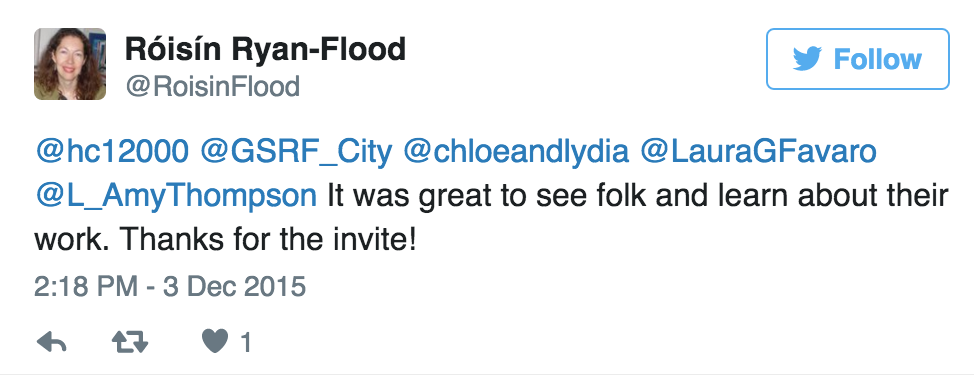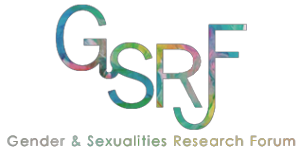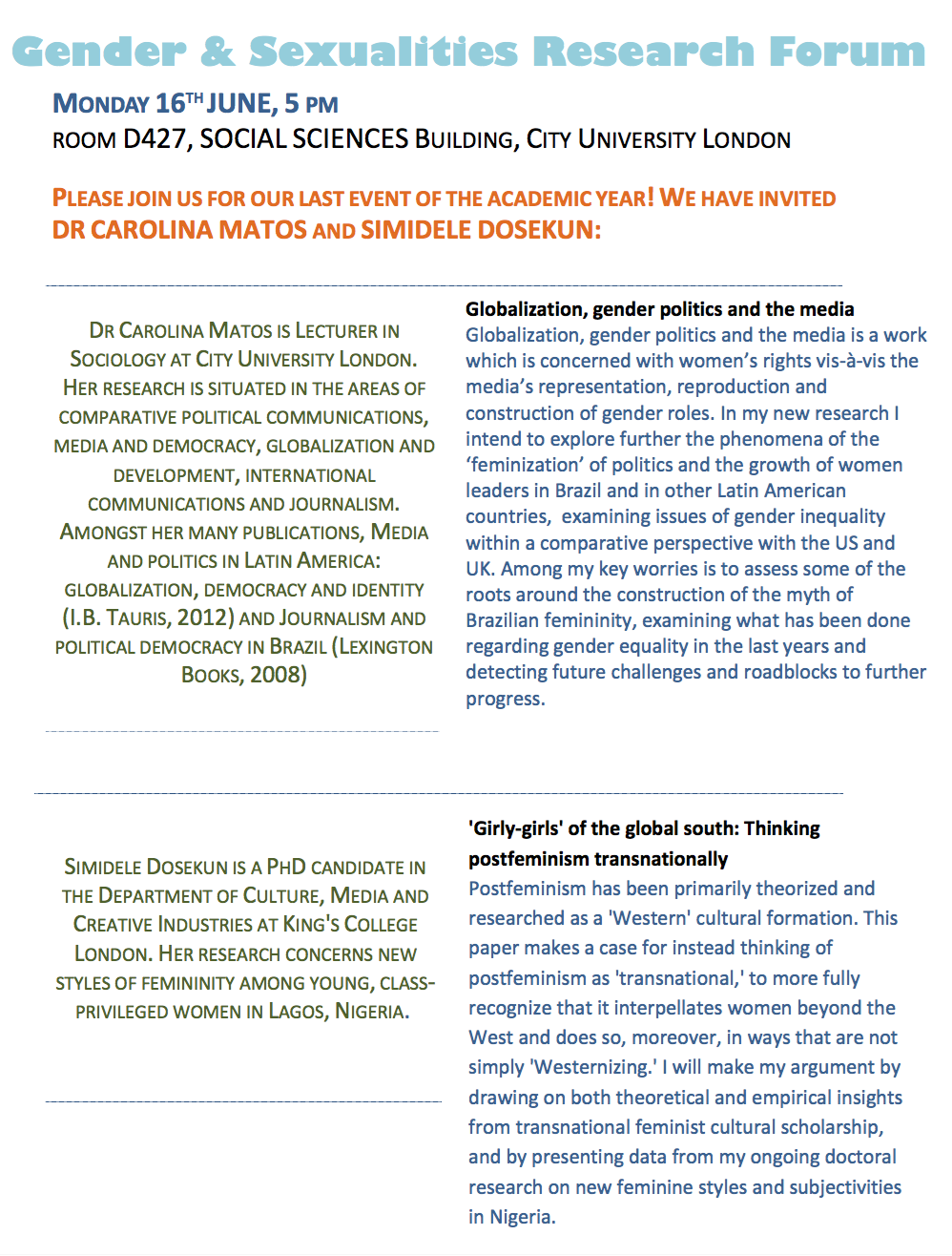For all those who are interested or were unable to attend the workshop, Róisín has kindly shared the slides and references used in the lecture. You can download the slides from this link: Feminist and queer methods workshop – Ryan-Flood.
See below for the reference list, many of which can also be found in Silence and Secrecy in the Research Process: Feminist Reflections.
References:
Finch, J. (1983) ‘It’s great to have someone to talk to’: ethics and politics of interviewing women’. In Bell, C. & Roland, H. (eds) Social Researching: Politics, Problems, Practice. London: Routledge.
Gilbert, M. (1994) ‘The Politics of Location: Doing Feminist Research at “Home”’, Professional Geographer, 46(1): 90-96.
Katz, C. (1994) ‘Playing the Field: Questions of Fieldwork in Geography’, Professional Geographer, 46(1): 67-72.
Kirsch, G. E. (1999) Ethical Dilemmas in Feminist Research: The politics of location, interpretation and publication. New York: SUNY.
Kulick, D. & Wilson, M. (Eds.) (1995) Taboo: Sex, Identity and Erotic Subjectivity in Anthropological Fieldwork. London: Routledge.
Lorde, A. (1984) ‘The Transformation of Silence into Language and Action’. In Lorde, A. Sister Outsider. California: The Crossing Press Feminist Series.
Maynard, M. & Purvis, J. (1994) Researching Women’s Lives from a Feminist Perspective. London: Taylor & Francis.
Mullings, B. (1999) ‘Insider or outsider, both or neither: some dilemmas of interviewing in a cross-cultural setting’, Geoforum, 30 (4): 337-50.
Newton, E. (1993) ‘My Best Informant’s Dress: The Erotic Equation in Fieldwork’, Cultural Anthropology, 8(1): 3-23.
Roberts, H. (ed) (1991) Doing Feminist Research. London: Routledge.
Patai, D. (1991) ‘US academics and Third World women: is ethical research possible?’ In Gluck, S. & Patai, D. (eds) Women’s Words: The Feminist Practice of Oral History. London: Routledge.
Ryan-Flood, R. & Gill, R. (eds.) (2010) Secrecy and Silence in the Research Process: Feminist Reflections. London: Routledge.
Ryan-Flood, R. & Rooke, A. (eds.) (2009) ‘Que(e)rying Methodology: Lessons and Dilemmas from Lesbian Lives’ [journal special issue], Journal of Lesbian Studies, 13(2).
Spronk, R. (2011) ‘Beyond Pain, Towards Pleasure in the Study of Sexuality in Africa’, in Lyons, A. P. & Lyons, H. D. (Eds.) Sexualities in Anthropology: A Reader. Oxford: Wiley-Blackwell.




